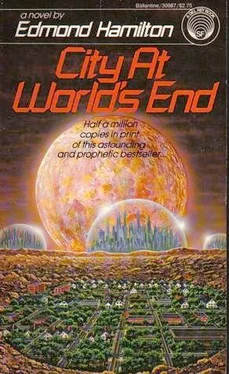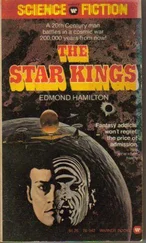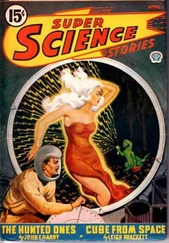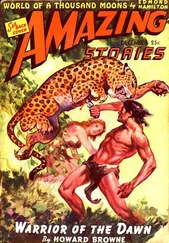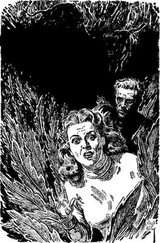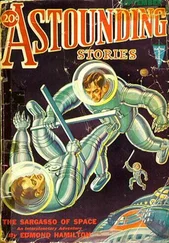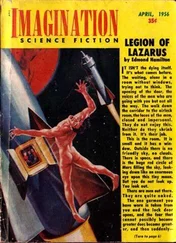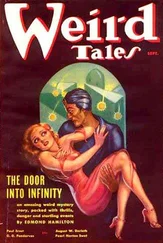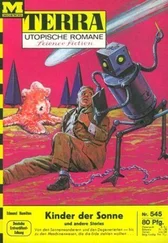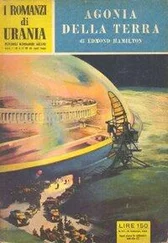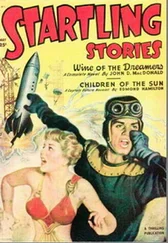“Oh, shut up,” said Kenniston impatiently. “Gorr and Margo don’t make the laws. They’re simply being decent enough to give us fair warning of something we wouldn’t have known about until it was too late.”
He knew there was more in it than that, but he was too hurried and upset to search for deeper motives now. He turned to Gorr and the Spican.
“Listen,” he said. “You’ve seen how the Mayor reacted. Well, I can assure you that all our people will react just that way, only more so. Tell that to Varn Allan, and tell her that she’d better come here and talk about this evacuation before she gets in too deep. Tell her we don’t like having things done behind our backs. Tell her—” He caught himself, surprised by his own fury. “No, I guess you couldn’t tell her that,” he said, and Gorr Holl grinned.
“As one primitive to another, I get your meaning.”
“Well, all right. And Gorr—you and Magro and the others better stay out of the city. When this thing breaks, I wouldn’t guarantee anybody’s safety.”
“Oh,” said Gorr Holl, and grinned very widely so that even his grinders glistened, “we’ll be quite safe, confined to quarters in the ship.
We, or rather I, have done an evil thing. We have spoken out of turn, and upset the Policy.”
The three of them, humanoids and human, looked at each other, and there was understanding between them. Kenniston put his hand on Gorr Holl’s furry shoulder, and gripped the iron muscles of it, and Magro said, “One more thing, Kenniston. If there’s trouble—and I seem to smell trouble very strongly in the air—watch out for Lund. Varn Allan may be much too sure of herself, but she’s honest. Lund—well, he wants Varn’s job, and he will cheerfully cut anyone’s throat to get it.”
“That is so,” said Gorr Holl. “Remember, Kenniston.”
“I’ll remember. And—thanks.”
They went away, to take the message of defiance to the ship. Kenniston watched them go, and the Mayor watched them, and they listened to the cheering that followed them all the way to the portal.
“I’m sorry I called them freaks,” the Mayor said suddenly. “By God, they’re more like us than the people in that ship!”
Hubble nodded. “Their culture level is closer to ours. They haven’t lost their old aboriginal roots. Our own people have gone too far beyond us.
The whole pattern of their thinking is different. We—well, we’re strangers now, to our own kind.”
To Kenniston, the cheering and the happiness of the Middletowners out there was an ironically bitter thing, now. If they knew what was being planned for them…
He said to Hubble, nodding his head toward the Mayor, “Will you stick with him and keep him from telling everyone? He’ll listen to you more than to anyone.”
Hubble said, “I will. You get some sleep, Ken. You’ve been working a tough grind—and the Allan woman and Lund won’t likely come before morning.”
And Kenniston slept, but neither much nor well. In spite of his exhaustion, Gorr Holl’s words rang like passing bells in his mind all the rest of that night—evacuate, evacuate—to the world of another star. And he thought of all the people of Middletown who happily believed their troubles were over, and of Carol—particularly of Carol—and most of all he thought of Varn Allan, whom he had begun to hate. And he was afraid.
It did not take much imagination to divine what the Mayor’s narrowness had missed—a vast and powerful machinery of government directing this future universe, a machinery of which the big starship and its occupants were but a symbol. It did not seem likely that a handful of people on a dying planet could successfully defy that government for very long.
Hubble woke him at last out of an uneasy slumber, to tell him that Varn Allan and Lund had come, and that the Mayor had called the City Council.
“We need you to interpret, Ken,” he said. “You speak the language better than any of us, and this is too important to take any chances of misunderstanding.”
Neither of them talked much on the way to the soaring tower that was now City Hall. And Kenniston could see that Hubble was as worried and oppressed as he.
A crowd had gathered in the plaza, a happy crowd, come to cheer their good friends who had helped them so much. Inside City Hall, the Council of Middletown sat around a massive metal table. The Mayor, Borchard the coal dealer, Moretti the wholesale produce merchant, half a dozen more, facing at one end of the table the woman and the man who came from Vega and who were Administrators over a vast sector of space with all its worlds and peoples.
Mayor Garris fastened on Kenniston the moment he came in. He looked as though he had slept even less than Kenniston, and his mood had not changed since the night before.
“You ask her, Kenniston,” he said. “You ask her if this evacuation story is true.” He asked her.
Varn Allan nodded. “Quite true. I’m sorry that Gorr Holl spoke so prematurely—is seems to have upset your people.” She glanced at the ominous faces of the City Council and the tense countenance of the Mayor. It struck Kenniston that she had been all through this situation before with other populations, and was attacking the problem with a kind of weary patience.
“I am sure,” she said, “that when they understand, they will realize that we are only serving their best interests.”
“Best interests?” cried Garris, when he had heard that. “Then why didn’t you tell us at first? Why plan this behind our backs?”
Norden Lund, a smug look on his face, said to the woman, “I told you it would have been better—”
“We’ll discuss that later,” she flashed. Kenniston could see the effort she made to keep her imperious temper in check as she went on, speaking directly to him, “We wanted to wait until we could present a complete plan of evacuation, so as not to upset your people too much.”
“In other words,” said Kenniston angrily, “you were dealing with a bunch of primitive aborigines who had to be coaxed along?”
“Aren’t you acting in just such fashion?” Varn Allan demanded. Again, she visibly got a grip on her irritation. She said, carefully as though explaining to a child, “A shipful of evacuation experts is on its way here, should arrive soon. They can assess the needs of your people, and find a world that will fit their physical and psychological needs. We will see that it is a world as much like your past Earth as possible.”
“That,” said Kenniston ironically, “is very decent of you.” The woman’s blue eyes flashed open hostility at him. He turned away from her, for Garris was demanding a translation. He gave it, and in his own resentment he did not soften it.
Garris forgot oratory, in his indignation. He sputtered, “If they think we are going to move away from Earth to some crazy world out in the sky, they’re badly mistaken! You make that clear to them!”
Varn Allan looked honestly bewildered, when Kenniston did. “But surely you people don’t want to stay in the cold and hardship of this dying world?”
Kenniston, watching the anger and the instinctive, basic fear grow still stronger in the Mayor’s white face, could understand his feelings. His own reaction was the same.
“Not want to stay here?” said Garris, forcing words out painfully from a throat constricted with emotion. “Not want to? Listen, you people! We have left our own time. We have had to leave our own city, our homes.
That’s enough. It’s all we can stand in one lifetime. Leave Earth, leave our own world? No!” There was no oratory about him now, at all. He was like a man who has been asked to die.
Kenniston spoke to Varn Allan. His own voice was not quite steady.
Читать дальше
